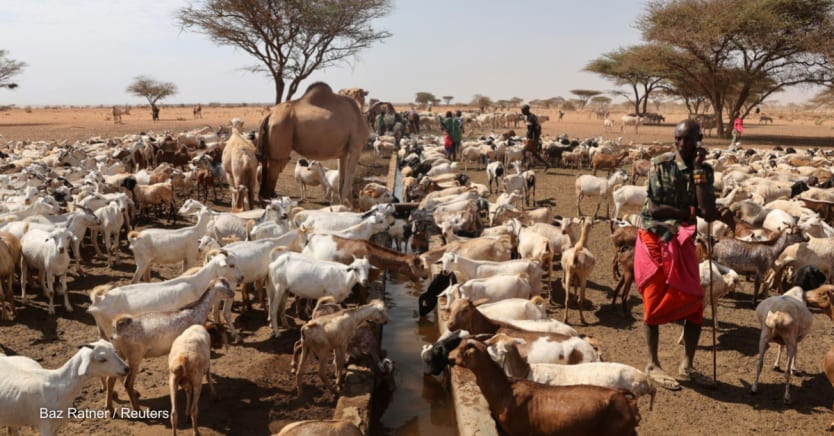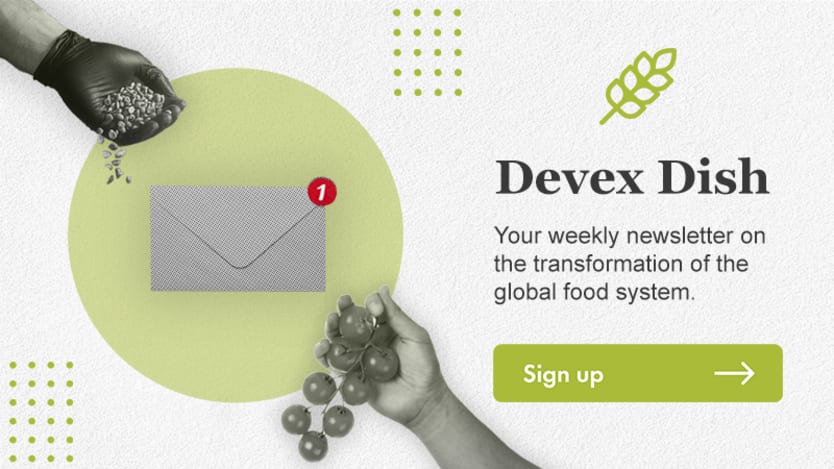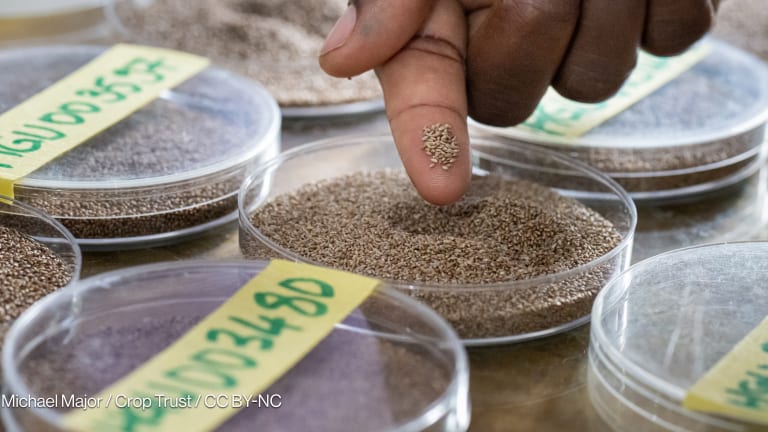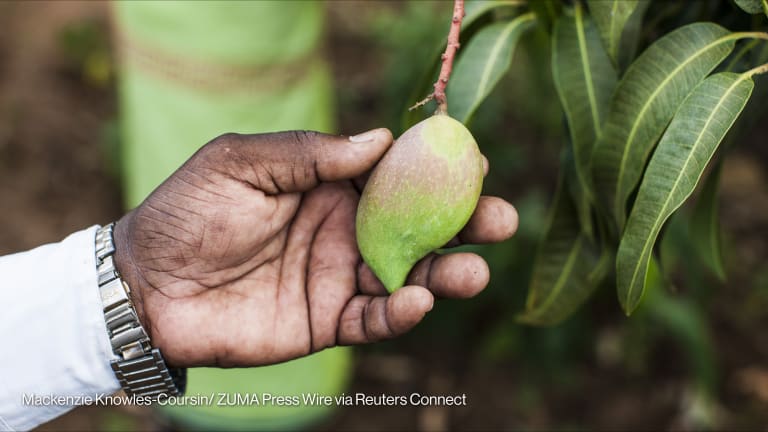CGIAR launches initiative to build food security policy in 6 countries

CGIAR has launched a new initiative that seeks to improve food security and resilience by supporting partner countries in developing coherent policies on food, land, and water.
The National Policies and Strategies for Food, Land and Water Systems Transformation Initiative, or NPS — which was inaugurated Tuesday in Kenya — is expected to support research on innovative ways to transform the three areas in Kenya, Nigeria, Egypt, India, Laos, and Colombia.
Get the inside track on how agriculture, nutrition, sustainability, and more are intersecting to remake the global food system in this weekly newsletter.
NPS was jointly created by CGIAR — a 50-year-old coalition of 15 research centers in dozens of countries — and its partners to develop policies that will better respond to crises such as drought and help countries integrate them at national and local levels. It is one of the many initiatives under the One CGIAR strategy, which aims to improve food security and poverty reduction through research.
Climate change, COVID-19, and conflicts, including the war in Ukraine, have all affected food security, according to Johan Swinnen, the global director of systems transformation at CGIAR and director general of the International Food Policy Research Institute — one of CGIAR’s research centers. But NPS can play a role in addressing hunger, poverty, and malnutrition through the implementation of coherent policies, he said.
NPS lead Clemens Breisinger described how the initiative will provide research support to the countries it covers.
“Working in tandem with Kenyan partner institutions and researchers, NPS will contribute analytical tools and evidence-based policy options that will help decision-makers improve food security and resilience,” he said.
Kenya and the Horn of Africa have suffered devastating drought in recent years, leading to hunger, poverty, and malnutrition. The World Food Programme estimates that the dry conditions could cause 20 million people in the region to go hungry this year.
Existing policies have proved inadequate for responding to such crises in Kenya. A regional project funded by the European Union's humanitarian aid agency has pointed to “poor policies, and slow implementation of good ones” as reasons why Kenyan drylands remain vulnerable to drought, in addition to inadequate local coordination, low investment in drylands, and inappropriate response efforts. It recommended that the government finalize and implement policies and institutional bodies that would better deal with droughts.
Though the country developed a form of livestock insurance and is now buying animals from farmers to cushion them from the effects of drought, 3.5 million people in the country are still facing hunger.
Harry Kimutai, Kenya’s principal secretary for livestock, told Devex that new policies developed under NPS will complement existing ones and bring together different ministries to provide some much-needed coherence to national policy.
In Kenya, NPS will partner with the Ministry of Agriculture, Livestock, Fisheries and Co-operatives; the Kenya Institute for Public Policy Research and Analysis; the Council of County Governors; the International Fund for Agricultural Development; and the Alliance for a Green Revolution in Africa, among others.
Update, May 18, 2022: This article has been updated with additional details on CGIAR.

Search for articles
Most Read
- 1
- 2
- 3
- 4
- 5








